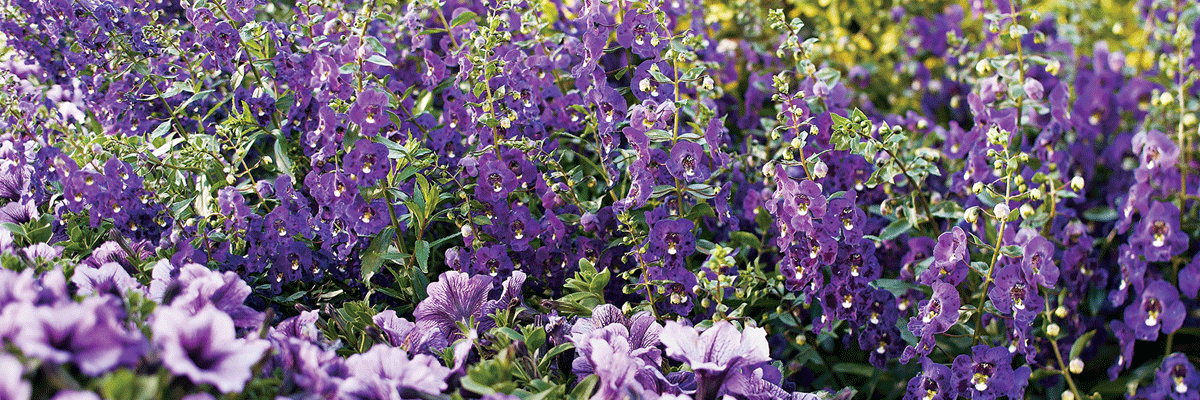
Fertilizing Your Annuals
When perennials bloom poorly or produce little or no seed, they can try again the next year. Unfortunately, annuals don't get this second chance. Annuals work hard to form flowers, and a little help from you will ensure they provide the best show possible.
Like other plants, annuals need the big three nutrients (nitrogen, phosphorous, and potassium). Healthy soil that is rich in organic matter provides the basic nutrition most plants need, but some annuals will want a boost, especially if they are grown in pots. Every time water drains through the hole at the bottom of the container, nutrients in the soil are carried along with it, and they should be replaced.
Periodic applications of fertilizers containing all three major nutrients will ensure that your annuals are well-nourished. For flowering annuals, use an all-purpose plant food that will provide them with the phosphorous and potassium they need to realize their blooming potential. Foliage plants will flourish with a formula higher in nitrogen (the first of the three numbers in a fertilizer formula).
Types of Fertilizer
Whatever type of fertilizer you choose (granular or liquid, synthetic or organic) remember to follow the directions on the package for how much to use and how often to apply it. Overfertilizing is worse for plants than feeding them too little. Too much fertilizer causes rapid, weak growth that is susceptible to damage by pests and diseases, and excess fertilizer may run off and find its way into the water table, causing pollution.
Granular Fertilizer
For annuals in beds and borders, granular fertilizers are one option. Spread granular fertilizers over the soil around the plants and scratch them in lightly before watering. You can apply synthetic granular fertilizers at planting time and periodically throughout the growing season. It takes more time for the nutrients in organic fertilizers to become available to plants, so these fertilizers are usually applied in spring before planting.
Liquid Fertilizer
Liquid fertilizers are ideal for potted plants. There are a number of liquid fertilizers on the market that are environmentally safe yet contain the nutrients needed to ensure good plant growth. During application, you can either follow the instructions on the package or dilute the concentrate to half the recommended strength. A half-strength solution will still provide adequate nourishment while keeping you from overfertilizing your plants. Simply apply your liquid fertilizer every three or four weeks for best results.